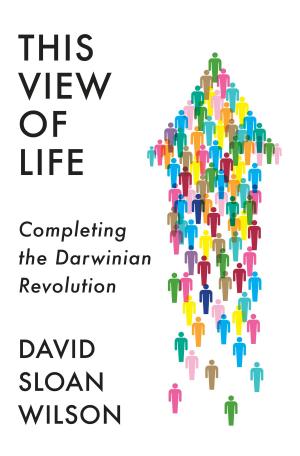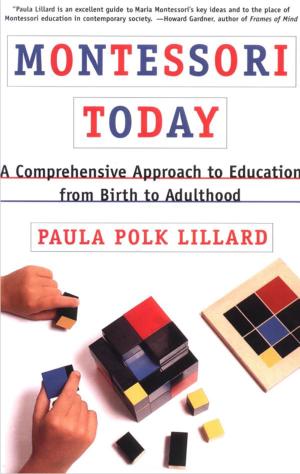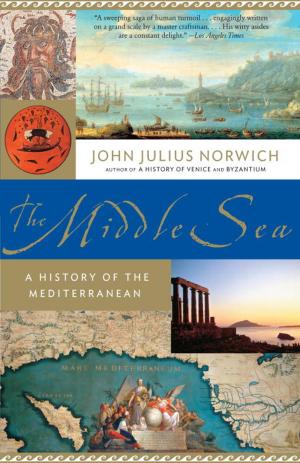| Author: | Richard Marius | ISBN: | 9780307828057 |
| Publisher: | Knopf Doubleday Publishing Group | Publication: | February 13, 2013 |
| Imprint: | Knopf | Language: | English |
| Author: | Richard Marius |
| ISBN: | 9780307828057 |
| Publisher: | Knopf Doubleday Publishing Group |
| Publication: | February 13, 2013 |
| Imprint: | Knopf |
| Language: | English |
Most previous biographers of Thomas More have sought to prove him a saint; in this, the first full-scale biography of More in half a century, Richard Marius, a leading Reformation historian, seeks to restore the man. More’s life spanned a tumultuous period in Western history. He was born in 1478 into a society still medieval in its customs and laws. But by the time of his death in 1535 England was already shaken to its depths by the powerful and unsettling ideas of the Renaissance. Marius draws upon important recent research and his profound knowledge of More’s own voluminous writing to make a coherent whole of the life and work of the immensely complex man who was both a product of the times and a singular figure in them.
He gives us More the boy—his London childhood, he deep respect for his father, who rose from a tradesman’s background to become a judge of the highest court in the land (a “council of fathers” was to rule More’s kingdom of Utopia) . . . More the youth—sent at about age twelve to serve in the household of the powerful and political Bishop Morton, later struggling to choose between the priesthood and the lures of secular life: marriage and a career in the great world… More the Londoner, the city man—lawyer, graduate of the Inns of Court, member of the rising middle class with its drive for an achievement and position.
We see More the humanist man of letter as Marius treats in full his friendship with Erasmus; his now controversial History of Richard III, from which Shakespeare’s Richard derives; and the originals and meanings of his most famous work, Utopia. More the family man is reveal in his relationship with his father, his two wives, and his children as far more complex than the sanctified image of legend.
Marius explore More’s public career as Lord Chancellor, as champion of the Catholic church, and finally as martyr to the old faith. He shows us a man who, although he hated and feared tyrants, always believes that authority as a source of order was necessary to the public good—a man who as royal councilor and Lord Chancellor upheld his king until the very moment when, in response to Henry’s final tyranny, he chose “to die the King’s good servant, but God’s first.” Marius also demonstrates that it was the centuries-old authority of the Catholic Church that More revered; that he was as suspicious of paper supremacy as of any tyranny.
The man Marius ultimately reveals is one more passionate and driven (in his family life, his convictions, his persecution of heretics) than the serene hero of A Man For All Seasons. But he is also a man possessed of such wit, integrity and charm that he was loved not only by his family but by almost everyone who knew him. It is the special triumph of this biography that with its rare combination of impeccable scholarship and narrative power, we are brought into the presence of a whole person with all his flaws and virtues, and that by the time More meets his death, he has become familiar and important to us not merely as a historical figure but also as a human being.
Most previous biographers of Thomas More have sought to prove him a saint; in this, the first full-scale biography of More in half a century, Richard Marius, a leading Reformation historian, seeks to restore the man. More’s life spanned a tumultuous period in Western history. He was born in 1478 into a society still medieval in its customs and laws. But by the time of his death in 1535 England was already shaken to its depths by the powerful and unsettling ideas of the Renaissance. Marius draws upon important recent research and his profound knowledge of More’s own voluminous writing to make a coherent whole of the life and work of the immensely complex man who was both a product of the times and a singular figure in them.
He gives us More the boy—his London childhood, he deep respect for his father, who rose from a tradesman’s background to become a judge of the highest court in the land (a “council of fathers” was to rule More’s kingdom of Utopia) . . . More the youth—sent at about age twelve to serve in the household of the powerful and political Bishop Morton, later struggling to choose between the priesthood and the lures of secular life: marriage and a career in the great world… More the Londoner, the city man—lawyer, graduate of the Inns of Court, member of the rising middle class with its drive for an achievement and position.
We see More the humanist man of letter as Marius treats in full his friendship with Erasmus; his now controversial History of Richard III, from which Shakespeare’s Richard derives; and the originals and meanings of his most famous work, Utopia. More the family man is reveal in his relationship with his father, his two wives, and his children as far more complex than the sanctified image of legend.
Marius explore More’s public career as Lord Chancellor, as champion of the Catholic church, and finally as martyr to the old faith. He shows us a man who, although he hated and feared tyrants, always believes that authority as a source of order was necessary to the public good—a man who as royal councilor and Lord Chancellor upheld his king until the very moment when, in response to Henry’s final tyranny, he chose “to die the King’s good servant, but God’s first.” Marius also demonstrates that it was the centuries-old authority of the Catholic Church that More revered; that he was as suspicious of paper supremacy as of any tyranny.
The man Marius ultimately reveals is one more passionate and driven (in his family life, his convictions, his persecution of heretics) than the serene hero of A Man For All Seasons. But he is also a man possessed of such wit, integrity and charm that he was loved not only by his family but by almost everyone who knew him. It is the special triumph of this biography that with its rare combination of impeccable scholarship and narrative power, we are brought into the presence of a whole person with all his flaws and virtues, and that by the time More meets his death, he has become familiar and important to us not merely as a historical figure but also as a human being.















